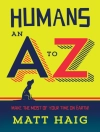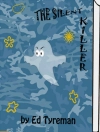
Change your perspective about aging. Here is a bracing view of the surprises that lie ahead, as age enkindles in us new expressions of life.
Our culture isn’t kind towards age. The dominant drive is to celebrate youth, and striving for more and more of everything, while age, we’re told, brings only depletion and loss. Even as Americans live longer, most consider old age with dread. It’s time to challenge these assumptions.
As author Philip Weinstein writes, “Old-age situations, assumed to announce the end-of-the-road, actually generate fresh life-moves. As we age, we tend to become ‘lighter’ in more senses than one….Indeed, we may find ourselves catapulted into late-stage ‘adventures’ the young never dream of.”
Time’s Bounty offers a view of age that differs greatly from our preconceptions—surprising, emancipating, sometimes even joyful. In five brief chapters, the author takes us from the generative discoveries that age occasions to the freedom that comes in life’s late chapters, when no company or institution or cause any longer owns us. At last, we are our own, in ways we could not imagine when younger.
Weinstein, a retired professor of English, draws not only on his own insights but on the insights found in writers he taught for decades: Shakespeare, Yeats, Proust, Faulkner, Eliot, Beckett, and others. Brief forays into their imaginative works add further illumination to the author’s own discoveries regarding the dramas—both the trials and the gifts—of old age.
Whatever your own life’s season, whether you’re still in the Spring or deep into life’s Winter, Time’s Bounty will change the way you think about age.
Despre autor
Philip Weinstein, for over forty years, was professor of English at Swarthmore College, and during that time published nine books of literary criticism. His Becoming Faulkner won the Hugh Holman Award as the best book on Southern Literature published in 2010. His recent essay, “Soul-Error, ” was chosen for inclusion in Best American Essays 2020.











